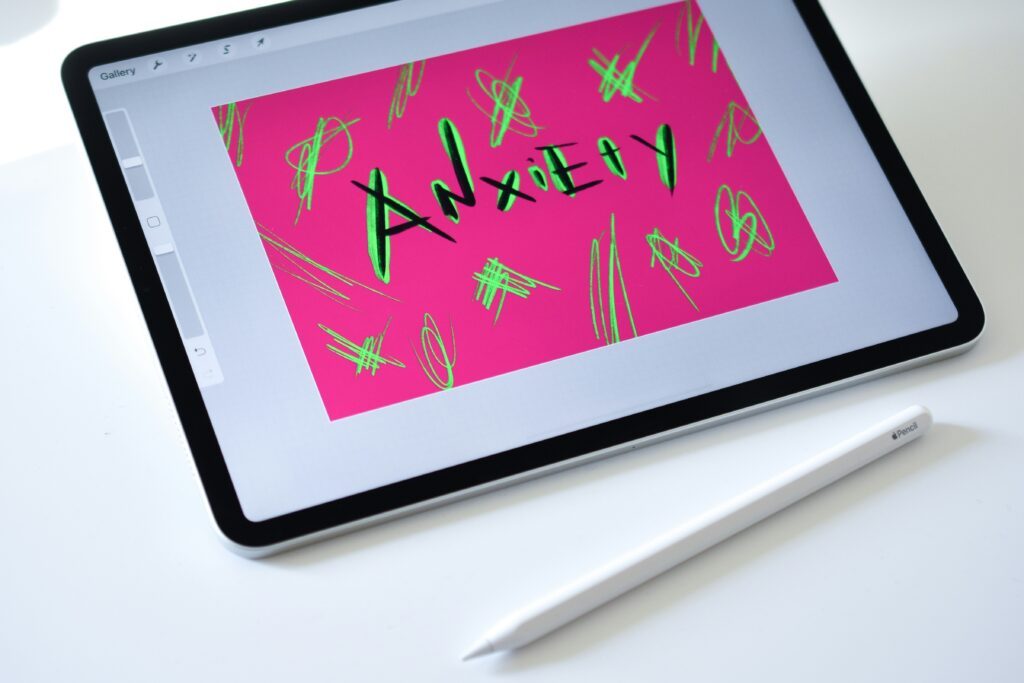Why Is My Anxiety Getting Worse?
It’s okay to feel nervous sometimes. But when that nervous feeling doesn’t go away or starts to get worse, it can be scary. If you’ve been asking yourself, “Why is my anxiety getting worse?”—you’re not alone. Many people feel this way.
This guide will help you understand what anxiety is, why it gets worse, and what you can do about it. We’ll keep it simple and easy to understand.

What Is Anxiety?
Anxiety is your body’s way of reacting to stress. It’s a normal response to scary or stressful situations. This can be things like:
- A big test
- A job interview
- A scary movie
- An unexpected bill
These feelings are called anxious feelings. Everyone has them sometimes. But for some people, anxiety doesn’t go away. It can start to make everyday activities hard.
When Anxiety Becomes a Problem
If you feel anxious every day, even when nothing scary is happening, you may have an anxiety disorder. This means the anxiety is stronger than it should be and lasts a long time. It can also get worse over time if not treated.
Why Is My Anxiety Getting Worse?
There are many reasons why your anxiety may be getting worse. Let’s look at some common causes:
1. Stressful Situations
Big life changes like moving, starting a new school, or a traumatic event can make your anxiety levels spike.
2. Lack of Sleep
Not sleeping well or staying up too late can make your brain tired. This can increase feelings of anxiety.
3. Poor Diet or No Exercise
Not eating well or skipping physical activity can make your body feel bad—and your brain too.
4. Medical Conditions
Things like chronic pain, heart disease, or respiratory disorders can increase anxiety symptoms.
5. Other Mental Health Conditions
Anxiety can happen with other mental health conditions like depression, Post-traumatic stress disorder (PTSD), or Obsessive-compulsive disorder (OCD).
6. Negative Life Events
Breakups, losing a job, or even everyday life problems can all add to your anxiety.
Common Symptoms of Anxiety
Anxiety doesn’t just affect your thoughts. It can also affect your body. These are called physical symptoms:
- Chest pains
- Heart palpitations (fast or pounding heart)
- Dry mouth
- Muscle aches
- Hot flashes
- Uneasy feeling or a sense of dread
Other anxiety symptoms include:
- Feeling jumpy
- Trouble sleeping
- Getting tired easily
- Avoiding social situations
Types of Anxiety Disorder
There are many types of anxiety disorders. Each one is a little different.
1. Generalized Anxiety Disorder (GAD)
This is when people worry too much about everyday situations, even when there’s no real danger.
2. Social Anxiety Disorder
People with this disorder fear social events and social interactions. They may avoid spending time with others.
3. Panic Disorder
This involves panic attacks—sudden feelings of intense fear with strong physical symptoms.
4. Separation Anxiety Disorder
This type often starts in childhood. It’s the fear of being away from loved ones.
5. Illness Anxiety Disorder
People with this disorder worry a lot about being sick, even if they feel okay.
Risk Factors That Make Anxiety Worse
Some things can raise the chance of having or making anxiety worse:
- Family history of anxiety
- Negative life experiences like bullying
- Chronic health issues
- Lack of sleep or poor quality sleep
- Environmental factors, such as noise or chaos at home
When to Get Help
If your anxiety is making it hard to go to school, do chores, or hang out with friends, it may be time to get help. You may notice your:
- Quality of life is getting worse
- Anxiety happens every day
- You avoid doing things you once enjoyed
A mental health specialist or healthcare provider can help.
You can also learn more about anxiety treatment here.

How Anxiety Affects Daily Life
People with anxiety may:
- Miss school or work
- Avoid seeing friends
- Feel scared for no clear reason
- Feel overwhelmed doing routine activities like shopping or cleaning
- Have trouble during social interactions
This can lower their quality of life and make everyday life feel very hard.
How Doctors Check for Anxiety
Doctors may do a physical exam to rule out other health conditions. They may ask questions about:
- When your anxiety started
- How strong your anxiety is
- What anxiety triggers you notice
- Your medical care history
They may also check for mental health disorders using tools like surveys or talking with you.
Effective Treatments for Anxiety
Good news—effective treatment is available. Many people feel better with help.
1. Therapy
- Cognitive therapy: Helps change negative thoughts
- Behavioral therapy or behavioural therapy: Helps change actions
- Exposure therapy: Slowly faces fears
- Mindfulness-based therapies: Focus on the present moment
- Expression therapy: Like art or music
2. Medication
Doctors may give:
- Selective serotonin reuptake inhibitors (SSRIs)
- Serotonin-norepinephrine reuptake inhibitors (SNRIs)
- Other anti-anxiety medications
These help change brain chemicals like serotonin, which plays a potential role in mood.
3. Lifestyle Changes
- Regular exercise
- Better sleep hygiene
- Relaxation techniques like deep breathing exercises or progressive muscle relaxation
- Eating healthy
- Avoiding too much caffeine
- Using grounding techniques during high anxiety levels
4. Online Resources and Support
- Online therapy options
- Support groups
- Mental health apps
- Additional resources like the Mental Health Services Administration
Coping with Anxiety Day by Day
Here are simple things you can do:
- Take breaks when overwhelmed
- Use deep breathing or stretching
- Do fun activities like drawing or dancing
- Use time management to avoid stress
- Avoid unnecessary noise if it bothers you
- Talk to someone you trust
When to Call for Help Right Away
If you ever feel like you might hurt yourself or someone else, call a mental health emergency line or talk to a trusted adult right away.
You Are Not Alone
Many anxious people deal with this. You are not weak. You are not broken. Anxiety is a common problem that can be treated.
If you or someone you love has anxiety symptoms, talk to a doctor or counselor. Visit a mental health center or use online help. Learn more about Anxiety Treatment here.
FAQs About Anxiety Getting Worse
1. Why does my anxiety feel worse at night?
At night, there are fewer distractions. This makes it easier for anxious thoughts to take over.
2. Can anxiety get worse with age?
Yes. As life gets more stressful or health problems grow, anxiety can get worse. This is sometimes called Geriatric Anxiety.
3. Can physical health make anxiety worse?
Yes. Chronic health issues like heart disease or irritable bowel syndrome can make anxiety symptoms stronger.
4. What should I do if my anxiety gets worse?
Talk to a health care provider. They can help with diagnosis of anxiety and suggest treatment options.
5. Are there long-term effects of untreated anxiety?
Yes. Untreated anxiety can lead to severe anxiety, depression, and other mental disorders. It can also affect physical health.

Final Thoughts
Anxiety getting worse is not your fault. It can happen to anyone, at any time. But help is out there. Don’t wait. The earlier you get support, the better your quality of life can be.
Ready to feel better? Explore Anxiety Treatment with Revival Mental Health.
Visit SAMHSA or contact us today for more information.





